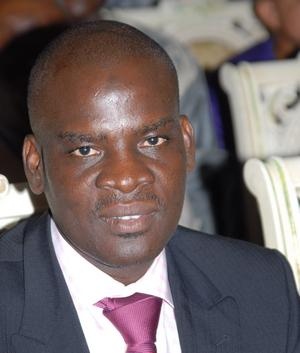The Minister for Communications, Mr. Haruna Iddrisu, has cautioned the Electoral Commission (EC) and all the stakeholders in the December 7 presidential and parliamentary elections to be cautious with the biometric verification and authentication they intend to implement.
According to him, biometric authentication or verification was welcome news, since it would add to the transparency and facilitate a credible voters’ register, since all the parties had admitted that the current register was bloated.
He, however, cautioned that whilst looking at the positive side of the whole exercise, stakeholders must not gloss over the negative impact the process could also have on the nation.
Mr. Haruna Iddrisu, who was speaking in interview with The Chronicle newspaper in Accra yesterday, noted that biometric verification must always be supported by a robust data base that is very reliable. According to the Tamale South Member of Parliament, the EC had never piloted biometric verification in any elections it has organised, therefore, rolling out the programme on a national scale, such as general elections, could be dangerous if it is not supported by the right infrastructure.
Citing the banking industry as an example, the Communications Minister said customers of some of the banks had on a number of occasions failed to withdrew money from their accounts, due to the failure of the system.
He argued that since the 23,000 polling stations in the country were going to be linked to the national data base at the EC headquarters in Accra, it could also witness this system failure.
According to him, many factors contribute to this system failure, but the principal one is fiber cut or disruption of the satellite link. Considering the importance that the political parties attach to national elections, Haruna thinks it could lead to chaos.
The young Communication Minister is, therefore, appealing to the EC and the Inter Party Advisory Committee (IPAC) to think carefully about the concerns he has raised, and see how best they could avoid them on the Election Day.
Following the admission by all the stakeholders that the current voters’ register being used by the EC was bloated, the latter has decided to compile a biometric register to help clean the old one. The political parties, however, insist that biometric register alone was not enough, and that facilities for verification on the Election Day by the voter must be introduced.
The EC was initially, reluctant to accept the new proposal, but after persistent pressure from the stakeholders, the election body has now agreed to do the verification.
General News of Monday, 20 February 2012
Source: The Chronicle













